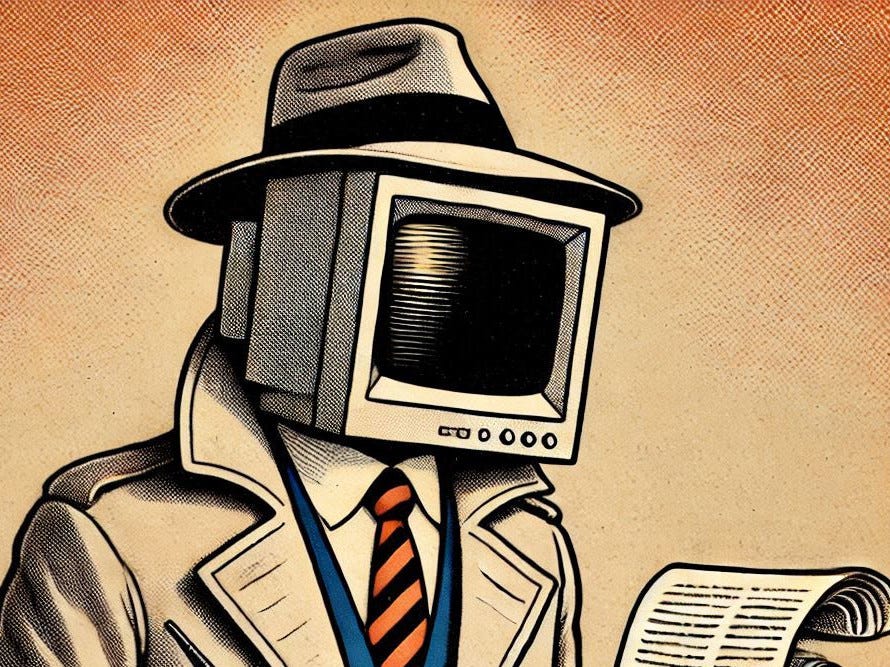Bits and bytes of Woodward and Bernstein
On copyright protection, artificial intelligence, and big journalistic dangers ahead
One of the many unusual aspects of content generated by artificial intelligence is that it is not eligible for copyright protection under current interpretations of US law. This happens to coincide with another exception in copyright law, which holds that facts cannot be copyrighted. Due to this loophole-within-a-loophole, virtually every piece of factual news reporting is rather suddenly up for grabs via a backdoor route to the public domain.
■ That's because artificial intelligence is being used to generate (one hesitates to use the word "write") "news" stories, and the essence of generative AI is that it draws from the available written content in the world to create new material based upon the old. All it takes is for an AI tool to recognize factual content, and it is more or less at liberty to generate an offshoot or derivative piece of content -- which it can do in virtually unlimited volume, without sleep, until the end of time.
■ Facts, though, can be costly to obtain, and real judgment remains an exclusive advantage of thinking human beings. That hasn't stopped the companies backing AI technology from dabbling with experiments in the news business anyway. And it's only set to grow in intensity: One thing that human beings (who possess the eyeballs whose attention pays the bills for online services) are always likely to crave is new information about the world around them.
■ Lacking judgment is no small handicap: Computers might get pretty good at predicting what will generate clicks, but that doesn't mean they'll ever know when they've uncovered the next Watergate.
■ But if big computing companies, in the rush to try to generate any kind of profit off of AI experiments that they can, bluster their way into the news business with such force that they choke out the painfully dwindling number of journalists still on the job by "re-packaging" what the true shoe-leather reporters uncovered and wrote, then we're not only heading towards a future where everywhere is a news desert, we're also en route to a day when few human beings will have any practice (or resulting intuitive judgment) left to know when something advertised as "news" really is news.



